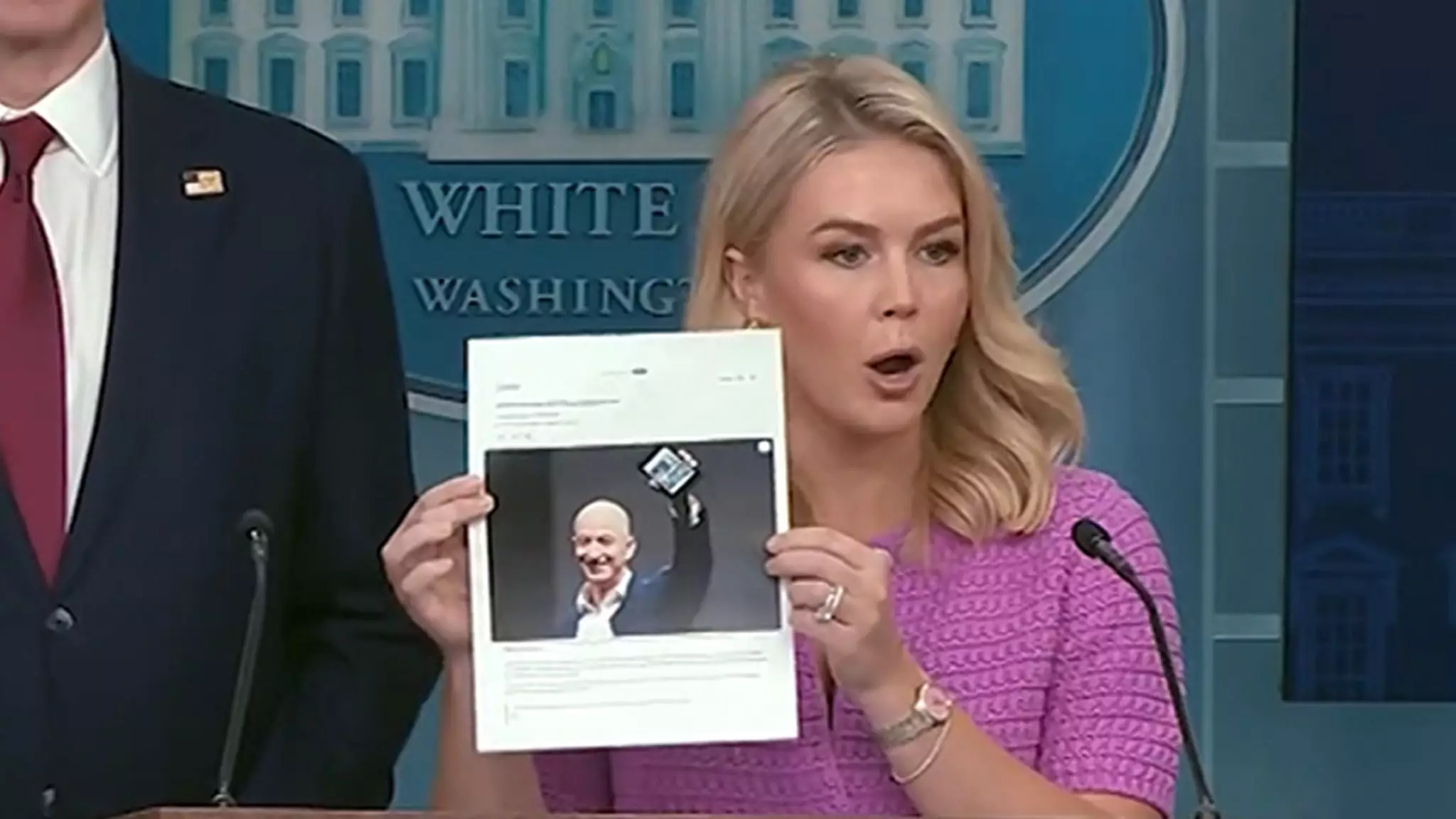The ongoing tug-of-war between big corporations and political administrations has taken an interesting turn with Amazon’s proposed pricing disclosure regarding tariffs. White House Press Secretary Karoline Leavitt has slammed this feature as a “hostile and political act,” suggesting that it aims to undermine the Trump Administration’s legacy. This reaction has sparked a robust debate surrounding the role of corporate entities in political discourse and whether initiatives like these serve as a genuine effort for transparency or merely a tactical strike against past policies.
This peculiar situation arose when reports suggested that Amazon would indicate how much consumers are paying due to tariffs imposed during Trump’s presidency. Leavitt’s pointed criticism reflects a broader concern about corporate influence in politics. If big companies like Amazon use their platforms to comment on government policies, should they not also be held accountable for the narratives they are promoting? The timing of such disclosures raises questions about the intent behind Amazon’s actions and whether they are truly aimed at consumer transparency or serving some other agenda.
Shifting Blame: Amazon’s Response and the Narrative Game
In a swift rebuttal, Amazon insisted that its considerations for listing import charges were limited to a specific, low-cost product line and explicitly stated that nothing was finalized for the broader marketplace. This pushback underscores an essential aspect of corporate responsibility in the modern climate—managing public perception while also navigating the political minefield. By seeking to clarify its stance, Amazon appears to be trying to defuse an emerging narrative. Yet, this prompts us to ask: is transparency genuinely the goal, or is it merely a strategy to ward off political backlash?
The incident also raises significant questions about accountability. During the press briefing, Leavitt critiqued Amazon for not highlighting inflation during Biden’s administration, implying that the tech giant’s selective transparency is politically motivated. This perception of bias not only tarnishes Amazon’s reputation but also suggests a more profound issue within the corporate landscape—companies often find themselves caught in a web of political affiliations that can influence their business practices and public image.
The Broader Implications for American Consumers
The conversation surrounding this issue extends far beyond Amazon. It reflects a growing concern about the role of large corporations in shaping economic narratives. Whether it’s the implications of tariffs or rising inflation, consumers are left trying to sift through the noise to ascertain what these realities mean for their everyday lives.
Leavitt’s call for Americans to buy local products highlights an effort to bolster domestic supply chains and is an argument worth examining critically. In an era where globalization has interconnected markets more profoundly than ever, the notion of “buying American” requires a nuanced understanding of the global economy. Will highlighting tariffs and import costs genuinely motivate consumers to shift their purchasing habits, or will it merely reinforce divisions in an increasingly polarized consumer environment?
Overall, Amazon’s proposed checkout feature is not just about pricing; it signals much more about the intersection of commerce and governance. As consumers become more aware of the political implications of their purchases, they must also wrestle with the challenge of navigating corporate rhetoric in a landscape fraught with ideological conflict. The real question is—how far do companies like Amazon want to venture into political territory, and at what cost?

Leave a Reply